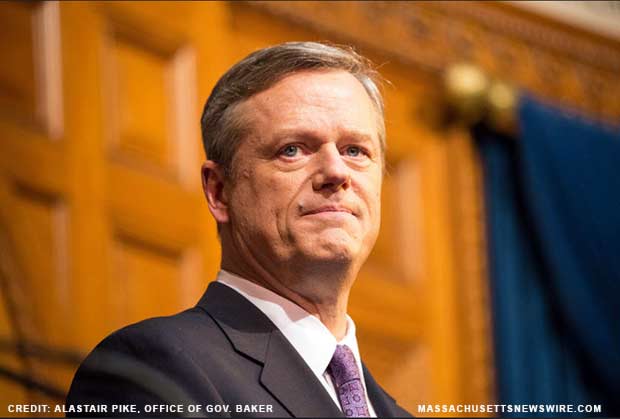BOSTON, Mass. /Massachusetts Newswire/ — The Baker-Polito Administration on Jan. 3, 2010 filed a $74.2 million supplemental budget bill to address ongoing critical funding needs, including $18 million to support MBTA infrastructure and safety investments, $10 million for school improvements and $4.2 million for investments in clean drinking water. These proposals were previously proposed in bills filed by the administration for Fiscal Year 2019 (FY19) and are now being refiled for Fiscal Year 2020 (FY20).

“This legislation will provide additional resources to enhance the safety of MBTA infrastructure, improve local schools and support testing for PFAS contamination in drinking water supplies,” said Governor Charlie Baker. “We look forward to working with the Legislature to pass this bill into law and deliver these much-needed investments.”
“Our Administration is committed to supporting growth and development for our community partners throughout the Commonwealth,” said Lieutenant Governor Karyn Polito. “These meaningful investments support public transit, health care and education priorities in a responsible manner and provide needed funding for local municipalities across Massachusetts.”
The bill provides the MBTA with $18 million, which, with the $32 million authorized in the FY19 final supplemental spending bill, allows for a total of $50 million to support additional staff, contractors and other resources necessary to expedite the completion of critical capital projects, enable proactive inspections to detect and address safety and reliability issues before they impact service, and implement enhanced maintenance procedures to ensure the reliable operation of MBTA vehicles and infrastructure.
The bill authorizes $4.2 million to test drinking water supplies for potential polyfluoroalkyl substances (PFAS) contamination. This testing will support state and local efforts to determine the scope of the problem and to identify best solutions, and supplements the $4.2 million authorized in the FY19 final supplemental bill.
The bill also proposes transferring $10 million to the Twenty-First Century Education Trust Fund. This request reframes Governor Baker’s 2018 recommendation that the Legislature transfer $50 million into a fund for school improvement. The recently enacted Student Opportunity Act established the Twenty-First Century Education Trust Fund “to address persistent disparities in achievement among student subgroups, improve educational opportunities for all students, share best practices for improving classroom learning and support efficiencies within and across school districts.”
“The Commonwealth is expected to have sufficient revenues to finance these appropriations and measures in Fiscal Year 2020,” said Secretary of Administration and Finance Michael J. Heffernan. “This supplemental spending proposal continues the Baker-Polito Administration’s focus on improving public infrastructure, services and programs in a reliable and fiscally disciplined way.”
The supplemental spending bill also includes:
- $16.3 million and a related authorizing section to ratify a recently concluded collective bargaining agreement
- $12.3 million (for a total of $16.3 million including FY19 funding) for Safety Net Provider Hospitals to mitigate the cost of providing care to un- and underinsured patients
- $5.4 million for service improvements for men who are civilly committed for substance use treatment under Section 35 of Chapter 123 of the General Laws
- $5 million to support high school students enrolled in Early College programs that give thousands of Massachusetts students, especially first-generation college-goers, access to college completion and career success
- $3 million for the Community Compact program to support grants for cities and towns that have entered compacts with the Commonwealth to support public interests and develop mutual standards for governing effectively
In total, the supplemental budget bill consists of $74.2 million in supplemental appropriations, at a net state cost of $68.1 million.





